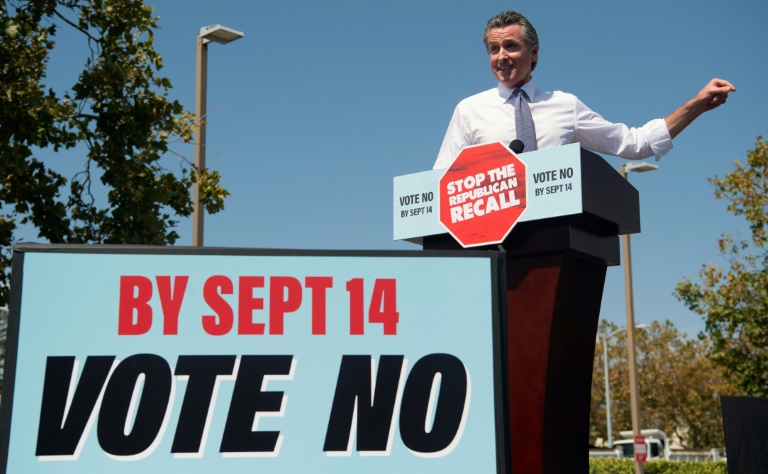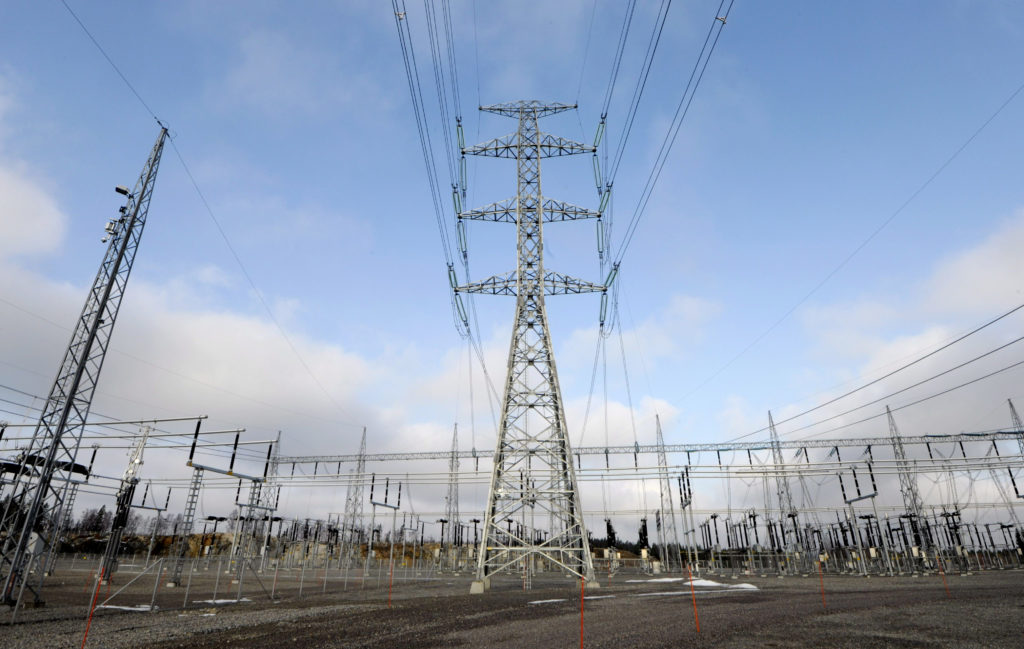It’s a $280 million taxpayer-funded election that most Californians don’t want, and which could see a candidate with only a handful of votes take the reins of the world’s fifth-largest economy.
California is voting on recalling Gavin Newsom, a Democrat who won the deep-blue US state’s governorship by a landslide in 2018, and whose term expires next year anyway.
The suave San Francisco-born politician has been forced back onto the campaign trail early by a quirk in California’s “direct democracy” constitution that allowed Republicans to force Tuesday’s vote by gathering a relatively low number of signatures.
It is the same mechanism that brought Arnold Schwarzenegger — California’s last Republican governor — to power in 2003, sealing the reputation of the state that is home to Hollywood as a place where anything is possible in politics.
The good news for Newsom is that the sun-drenched liberal bastion has grown even more staunchly Democratic since the “Terminator” star’s remarkable triumph almost two decades ago, making a repeat seem unlikely.
There is nobody of Schwarzenegger’s larger-than-life profile running this time — despite the presence of reality-TV celebrity Caitlyn Jenner, the leading contender is conservative radio host Larry Elder.
But while Newsom continues to enjoy healthy approval ratings, the attempt to oust him has already progressed further than many analysts expected, and his camp is not relaxing just yet.
That is in part due to the recall vote’s odd structure. Newsom needs to win more than half the votes in the ballot’s first question — “Shall Gavin Newsom be recalled?” — to stay in power.
Should he fail, his replacement would simply need to earn the most votes among 46 mainly Republican candidates.
“It’s almost impossible for a Republican to win a straight-up election for governor. This is a side route into the governorship,” said Jim Newton, a University of California, Los Angeles lecturer.
“We are facing the possibility that 49 percent of Californians might vote for Gavin Newsom, and he might lose to someone who gets 18 or 19 percent,” said Newton.
“That’s ridiculous. I mean, that’s a structural flaw in the recall.”
– ‘Arrogance’ –
With turnout likely to determine the outcome, Newsom should benefit from the pandemic-mandated practice of mailing ballots to all registered voters. There are also no fund-raising donation limits, allowing unions and entertainment moguls to flood Newsom’s coffers.
But the governor faces handicaps of his own making.
In November, Newsom was photographed maskless at a dinner with lobbyists at Napa Valley’s plush French Laundry restaurant, flouting his own Covid orders.
The images have become infamous, particularly among small business owners forced to shutter by pandemic restrictions.
The damage was worsened by reports Newsom was celebrating the birthday of an associate with links to creditors of PG&E, the utility firm blamed for record-breaking fires that are once again choking vast swathes of California this summer.
“The arrogance of the ‘pay-to-play’ is unbelievable,” said Anne Dunsmore, manager of the pro-recall “Rescue California” campaign, who views the meal as “a big uh-oh” that Democrats failed to take seriously for months.
Recall supporters are eager to stress a broad, cross-party litany of grievances against Newsom, including the state’s dire homeless problem, a sky-high cost of living and a massive Covid-relief unemployment fraud that cost California taxpayers billions.
But overall, the vote remains “in large degree a referendum on Gavin Newsom’s handling of Covid,” said Newton.
While a majority of Californians do approve of Newsom’s hands-on response, which included the nation’s first statewide lockdown, “it’s a very hard time to be an incumbent.”
– ‘Frivolous’ –
With 40 million inhabitants — the most of any US state — California would be a hugely symbolic scalp for Republicans gearing up for next year’s Congressional mid-terms.
Any new governor could repeal mask and vaccine mandates, and even tip the balance of the US Senate by appointing a Republican should 88-year-old Dianne Feinstein vacate her long-held seat.
Yet with an overwhelmingly Democratic legislature in place, and another governor’s election due in November 2022, which a Democrat — potentially Newsom — would almost certainly win, any impact could be limited.
This has led many to ponder the point of the whole affair.
A recent Public Policy Institute of California poll found 69 per cent of California’s likely voters believe the special election is a waste of money.
“It’s extraordinarily expensive for the state, it’s very disruptive to the governance of the state,” said Democratic strategist Bill Carrick.
“There’s got to be a hard look at the process… it’s got to have stronger protections from having something that turns out to be frivolous on the ballot.”









